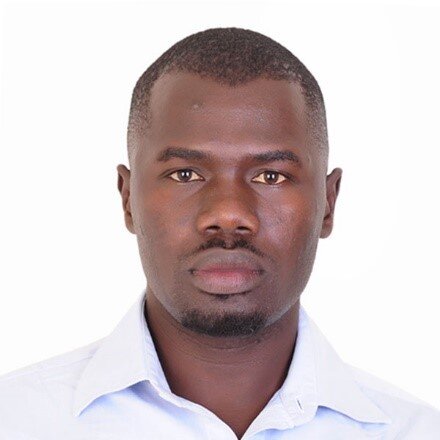Interview with Victor Asua - One of PAMAfrica’s PhD students

Victor Asua, the first candidate selected for the PhD program, was a Junior Scientist at The Infectious Diseases Research Collaboration (IDRC) after he completed a master’s degree in Immunology and Clinical Microbiology.
The PhD program is hosted by the Institute for Tropical Medicine (ITM), University of Tübingen. Institute for Tropical Medicine (ITM) who is a leading institution performing clinical trials in infectious diseases, especially antimalarial, interventions and vaccines both at its dedicated Clinical Trials Platform (CTP) and in collaboration with partner sites in tropical countries. The topics of the PhD program is linked to one or more of the clinical trials part of the PAMAfrica project or to malaria research in general.
Can you please tell us a little bit about yourself?
I am a Ugandan and a graduate of Biomedical Laboratory Technology. I have a Master of Science in Immunology and Clinical Microbiology. I started my career as a Laboratory Technologist and Research Assistant, immediately after my undergraduate degree. Since my master’s I have been working with Infectious Diseases Research Collaboration as a Junior Scientist on a project aimed at understanding the evolution of antimalarial drug resistance in Uganda.
What motivates you to work in the field of malaria?
The public health benefit of malaria research work that I do is my greatest motivation. Secondly, the relationship between malaria parasites and drugs is dynamic and often changing, and therefore requires constant evaluation. For instance, currently there is growing concern about reports of parasite resistance to first-line antimalarials. The project I work on monitors parasite populations for evidence of resistance and will promptly detect the presence of resistant parasites so that action can be taken to prevent its spread, and subsequently avert deaths. Our research observations also underscore the need for new and effective drugs to combat antimalarial drug resistance challenges, among others.
What will you focus on for your PhD?
My PhD research aims to examine the question of whether treatment with new compounds selects for parasites with decreased sensitivity and of a specific genotype. This study was motivated by the observation, in Uganda, of a wide range of sensitivities of field isolates to new compounds; and the high polymorphism of genes that either encode the chemical targets of the compounds or genes which carry polymorphisms associated with laboratory-selected resistance. I hope this knowledge can help guide the choice of compounds for combination therapy. It also sets the foundation for monitoring resistance to the new compounds when they become widely available for clinical use.
Malaria research and Africa needs next-generation scientists. Once you’ve completed your PhD, what next?
When I complete my PhD, I plan to take up a mentored, but independent research assignment under a senior scientist as a step towards my transition into research leadership. We have limited local research capacity in some of the research fields I plan to pursue during my PhD, including the application of genomics and computational biology in malaria research. This is one of the key gaps I will fill when I return home. I am also very interested in the pedagogical side of professorship and plan to undertake some teaching responsibilities alongside research work.